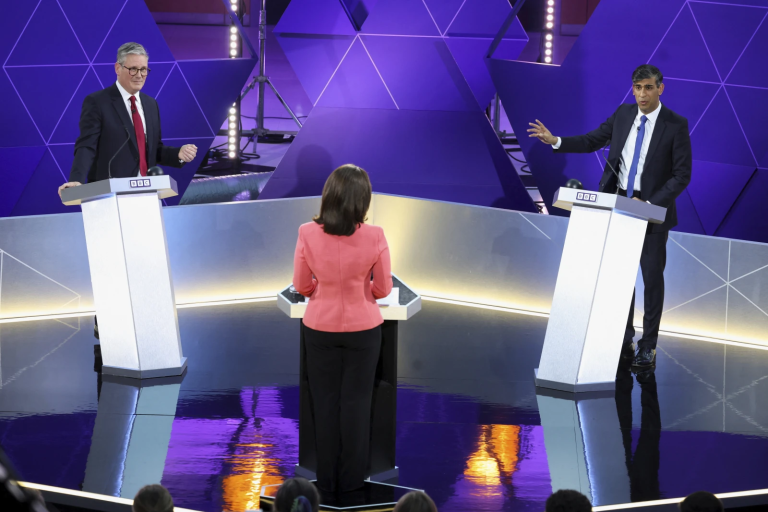On Thursday, the United Kingdom will hold its first national election in nearly five years, with opinion polls indicating that Prime Minister Rishi Sunak’s Conservative Party faces significant backlash for unmet promises during their 14-year tenure.
The centre-right Conservatives, in power since the global financial crisis, have won three subsequent elections. However, their governance has been marred by economic stagnation, deteriorating public services, and a series of scandals, making them vulnerable to criticism from both the left and right.
The Labour Party, positioned to the left, leads in most opinion polls with a campaign focused on the theme of “Change.”
The Conservatives also face competition from the new Reform Party, which is attracting votes from the right-wing base by criticizing the Tory leadership’s handling of immigration.
**Election Mechanics**
Voters across the UK will elect all 650 members of the House of Commons, representing individual local constituencies. The “first past the post” system means the candidate with the most votes in each constituency wins, even without an absolute majority, typically benefiting the two largest parties, Conservatives and Labour.
**Prime Minister Selection**
The party securing a majority in the Commons, either independently or through coalition, will form the next government, with its leader becoming the prime minister. The Labour Party currently appears to be in a strong position.
**Candidates and Key Players**
Prime Minister Sunak, in office since October 2022, leads the Conservative Party into this election. His main opponent is Keir Starmer, Labour Party leader since April 2020 and a former director of public prosecutions. Smaller parties, such as the Scottish National Party, Liberal Democrats, and the Democratic Unionist Party, may play critical roles in coalition-building if no party achieves an outright majority.
**Conservative Party Challenges**
The Conservatives have faced numerous challenges since taking power in 2010. Initially, they dealt with the global financial crisis’s aftermath, imposing austerity measures to balance the budget. Subsequent years saw the Brexit process, a severe COVID-19 outbreak, and rising inflation post-Russia’s invasion of Ukraine.
Voters now associate the Conservatives with a range of problems, from public service failures to a cost-of-living crisis and illegal immigration issues. Scandals, such as lockdown breaches and misleading lawmakers, led to the resignation of former Prime Minister Boris Johnson and a brief, tumultuous tenure for Liz Truss.
**Election Issues**
– **Economy:** High inflation and slow growth have made many feel poorer. The Conservatives have reduced inflation, but growth remains sluggish, raising questions about their economic policies.
– **Immigration:** The influx of asylum seekers via the English Channel has drawn criticism. The Conservative plan to deport some migrants to Rwanda has been controversial.
– **Health Care:** The NHS is struggling with long waiting lists and capacity issues.
– **Environment:** Sunak has rolled back several environmental commitments, facing criticism for these policy shifts amid global climate concerns.
**Early Election Decision**
Sunak surprised many by setting the election date for July 4, three months earlier than expected. This move, aimed at leveraging positive economic news, has faced backlash, including allegations of insider betting among party members and police officers, damaging the party’s reputation.
The election’s timing was a strategic gamble, with the parliamentary term originally scheduled to end in mid-December. Prime ministers can call elections when politically advantageous, adding to the speculation and surprise surrounding this early vote.

